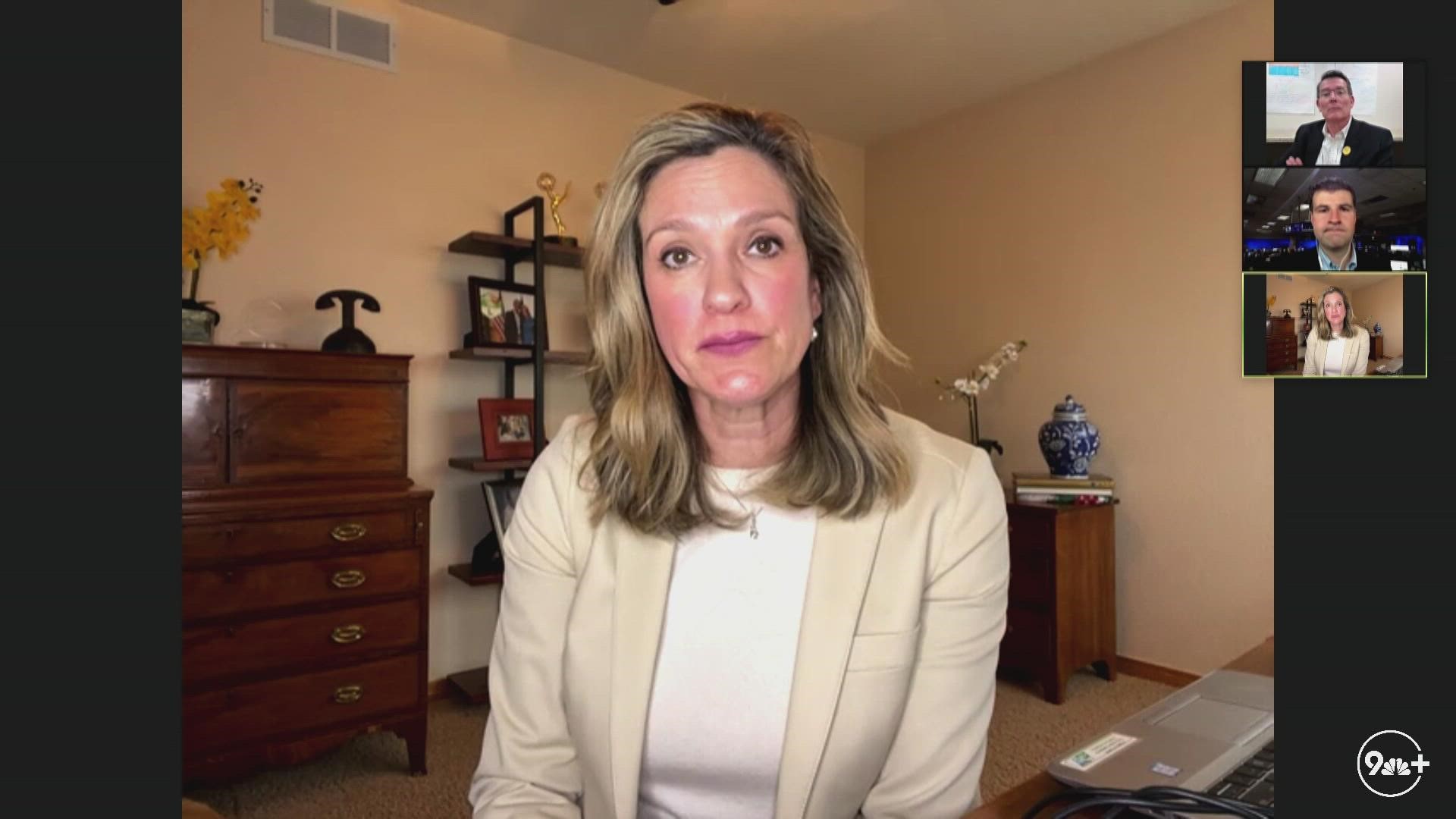COLORADO, USA — Summer is just around the corner, and for many, it is the perfect time to get together with friends and family. But to one medical expert, those gatherings, along with relaxed COVID-19 restrictions and a new omicron subvariant, could spark a new wave of COVID-19 in the state.
According to Dr. Ricardo González-Fisher with Servicios de la Raza, Colorado could see an increase "because we have that relaxation in our behavior, and also [because] people are gathering a lot. Swimming pools, parties, games," he said. "So there's going to be an increase.“
According to Vanessa Bernal with the Colorado Department of Public Health and Environment (CDPHE), the state is seeing an increase in the seven-day moving average positivity rate. It's currently sitting at 12.01%. That percentage is higher than in previous weeks.
"Let's remember that the state goal is 5% or less," Bernal said. "So, we're now in the double digits."
> Video above: Bernal joined González-Fisher and 9NEWS+ to talk about some of the ways Coloradans can prepare for a possible spike in COVID-19 cases this summer and give an update on COVID numbers in the state.
The numbers for the past week in Colorado, according to Bernal, are as follows:
- 1,541 reported cases
- 54 new hospitalizations
The state-level vaccination rate for the general population sits at "82.52% of people vaccinated with at least one dose," she said. Among the Hispanic community, the vaccination rate reached 40.13%, from 39% in previous weeks.
Bernal said that's the percentage for people who report their race and ethnicity.
“This number is always a little bit higher” when factoring in a new percentage from a model the state began using this year and which could push that number up nearly 10%, she said.
That model is based on the zip code where people were vaccinated, since ethnicity is often left blank.
Based on that model, "we are at 48.16%," she said.
“As always, the vaccine is the best weapon that we have against COVID and any of the other variants,” Bernal said.
People looking for vaccination sites can find them on the state's website.
González-Fisher expressed concern about the low vaccination rate in the Hispanic community and the increase in the positivity rate to 12.01%.
"This has grown four times," he said, stressing that those numbers didn't even include people who don't get tested for COVID and others who test at home and don't report it.
Gonzalez-Fisher said that because COVID is spreading fast, he encourages people to continue to wear masks when they are in crowded places with people they don't know.
According to González-Fisher, a new subvariant is causing concern and is being monitored, as he said it is spreading rapidly across Europe. It is the BA.2.12.1 subvariant.
"Remember, whatever happens in Europe, it will happen here in the United States a couple of weeks later," he said.
Gonzalez-Fisher said this new subvariant spreads more easily than omicron, and with only 40% of the Hispanic population vaccinated with at least one dose, it makes them more vulnerable to getting infected with this new subvariant.
"This subvariant has the capacity to infect even those who have up-to-date vaccine status or who were even previously infected with COVID," he said.
Gonzalez-Fisher emphasized that relaxing COVID restrictions and ridding of the masks will allow the subvariant to "spread more easily."
According to Gonzalez-Fisher, the new subvariant hasn't showed a significant increase in the number of hospitalizations or deaths as much as it has with the number of cases.
"But again, we are talking about it being transmitted in a population that has a high vaccination rate,' Gonzalez-Fisher said. "Europe has high rates of vaccinations in all the communities."
Servicios De La Raza, the state's largest nonprofit serving Latinos, will continue to offer their vaccination clinic every Tuesday from 4-8 p.m. at the organization, which is located at 3131 W. 14th Ave.
On Thursday and Friday mornings, they will also hold mobile clinics at the Mexican consulate located at 5350 Leetsdale Dr. #100. from 9 a.m. to 1 p.m.
No appointments are necessary and no form of identification is required.
SUGGESTED VIDEOS: COVID-19 Coronavirus

